Best Heart Attack Care in Nagpur

Heart attacks are medical emergencies that occur when the supply of blood to the heart becomes blocked. Such blockages can damage the heart muscle or even threaten life if treated in time. So, understand the symptoms, causes, and treatments to keep yourself and your loved ones safe from this deadly condition. Here, Dr. Chetan Rathi, a renowned cardiologist in Nagpur, will outline everything one should know about heart attack and heart care. Heart care services in Nagpur provided by Dr. Chetan Rathi are structured to render the best treatment and support possible for heart attack patients.
What is a Heart Attack?
There would be a heart attack wherein the blood supply to any part of the heart may cease quite suddenly. This usually arises due to a block in some arteries, caused by excess amounts of fat, cholesterol, or other substances. Unless the blood flows, heart tissue is damaged. It has also been referred to by yet another name, which goes for myocardial infarction. A heart attack causes a serious health problem since; for immediate medical attention, such may save lives.
What are the Symptoms of a Heart Attack?
Signs of heart diseases can be very life-saving if recognized in time. Common symptoms of heart attack are:
- Chest pain or discomfort; Heart may feel tight or compressed.
- Pain in your arms, neck, jaw, back, or stomach.
- Shortness of breath, even when resting.
- Dizziness or lightheaded feeling.
- Sweating with no physical exertion at all.
- Nausea or vomiting.
If any of these heart attack symptoms occur with you or anyone around you, then call for emergency help as soon as possible.
What Causes a Heart Attack?
Heart attacks occur when there is a blockage in arteries carrying blood to the heart. The common causes are as follows:
- Plaque Buildup: Fat and cholesterol depositing over time in arteries reduces the lumen diameter of arteries.
- Blood clots: When plaque ruptures, it forms a blood clot, and blood flow will stop.
- Spasms of arteries: Sometimes, spasm in an artery suddenly reduces blood flow.
Generally, such problems may appear because of leading unhealthy lifestyles, pre-existent diseases, or genetic predisposition.
How is a Heart Attack Treated?
Immediate treatment is crucial for a heart attack. The following methods are commonly used:
- Medications: Blood thinners, pain relievers, and drugs to dissolve clots.
- Angiography: Inserting a balloon to expand narrowed arteries to restore blood flow to the heart.
- Angioplasty: A procedure to open blocked arteries using a small balloon.
- Stents: A tube is placed in the artery to keep it open.
- Bypass surgery: Creates a new route for blood flow around the blockage.
- Lifestyle changes: Eating healthy, exercising, and quitting smoking are essential for recovery.
Advanced heart attack care and timely treatment in hospitals can save lives and improve recovery chances.
What Tests Will Be Done to Diagnose a Heart Attack?
Doctors use various tests to diagnose a heart attack and plan the best treatments of heart attack. These tests help doctors understand the severity of the condition and plan the best treatments of heart attack.
ECG (Electrocardiogram)
This test checks the heart’s electrical signals to spot odd patterns or problems with heart rhythms and how it works.
Blood Tests
When the heart gets hurt, it lets out enzymes into the blood. These can show a heart attack by pointing to heart damage or stress.
Chest X-Ray
A chest X-ray shows the heart’s size and shape as well as blood vessels. This helps to find heart-related issues or things that aren’t normal.
Angiography
This test uses a special dye and X-rays to see blockages or narrow spots in the arteries. It checks how blood flows and how healthy the heart is.
Echocardiogram
An echocardiogram uses sound waves to check how well the heart pumps blood. It gives a look at the heart’s structure and how it works.
What are the Risk Factors for a Heart Attack?
Certain factors can increase your chances of having a heart attack, such as:
Poor Eating Habits
Consuming too many fats and sugars leads to being overweight, increases cholesterol levels, and makes you more vulnerable to heart disease and other conditions.
Lack of Exercise
Stopping regular exercise will result in a weak heart, add pounds, and enhance the risk of heart attack and other related disorders.
Lighting up
Smoking damages your blood vessels, reduces oxygen flow and, over time, makes your heart disease, stroke and other heart and blood vessel diseases riskier.
High Blood Pressure
When your blood pressure rises and stays high, your heart works overtime, injuring your arteries and increasing chances for having heart disease and stroke.
Diabetes
If you have diabetes, your blood sugar tends to remain high. The high blood sugar damages your blood vessels. This causes various problems with your heart and blood vessels, including poor blood flow and heart disease
Family Health History
If the heart problems are common among your family members, there is a greater chance you will suffer from them. Your genes may influence the health of your heart as well as your risk.
Stress
Long-term stress can increase blood pressure and increase heart rate. This is not good for the heart and increases the chances of getting heart disease and other related problems.
Our Medical Services

ECG
An electrocardiogram (ECG) is one of the only and speediest tests utilized to survey the heart. Anodes (small, plastic patches that stick to the skin) are set at certain spots on the chest, arms, and legs.
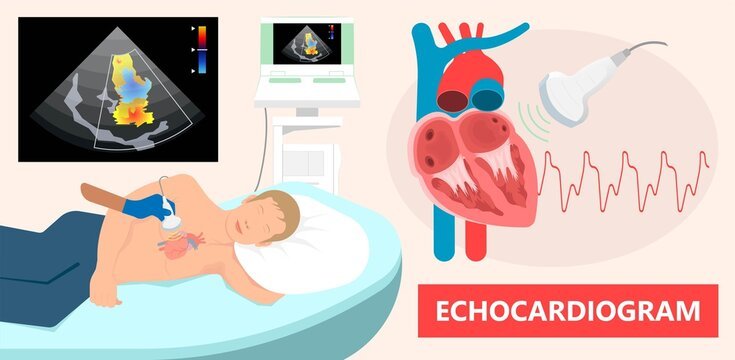
2D Echo
A two-dimensional Echocardiogram or 2D Echo test is a demonstrative test that employs ultrasound waves to evaluate the working of the heart.

Holter Monitoring
Holter monitoring measures your heart activity over an extended period, usually between 24 and 48 hours. Basically, a Holter Monitoring is a portable device which records the heart’s electrical signals.

BP Monitoring
Each time your heart beats, it pumps blood into your arteries. A blood pressure measurement may be a test that measures the force (pressure) in your arteries as your heart pumps.

Coronary Angiography
Coronary angiography diagnoses and evaluates coronary artery blockages. Contrast dye is injected into arteries, enabling X-ray imaging to visualize blood flow and identify narrowing or blockages.
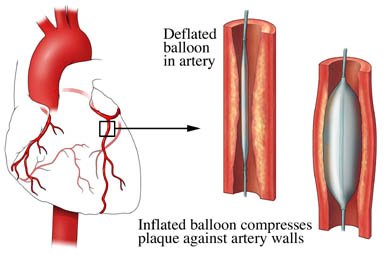
Coronary Angioplasty
Coronary angioplasty is a minimally invasive technique of abdominal artery angioplasty, which is used to treat coronary arteries that are obstructed or constricted and it is the most appropriate technique used by doctors for the treatment.
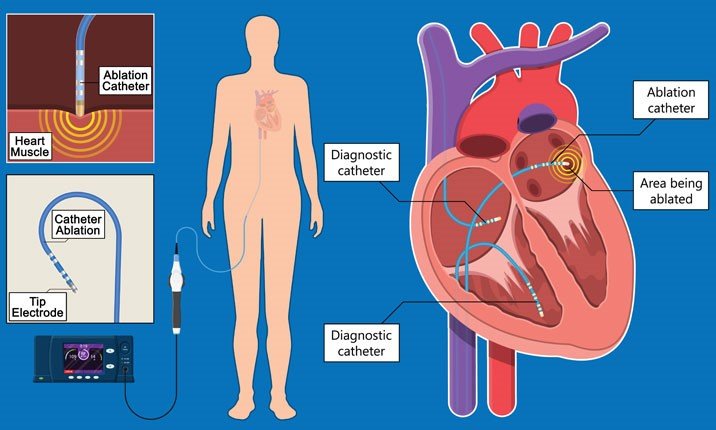
Electrophysiology Study
An Electrophysiology Study (EP study) is a test utilized to assess the heart’s electrical framework and check for abnormal heart rhythms. The natural electrical impulses coordinate the contractions of different parts of the heart.
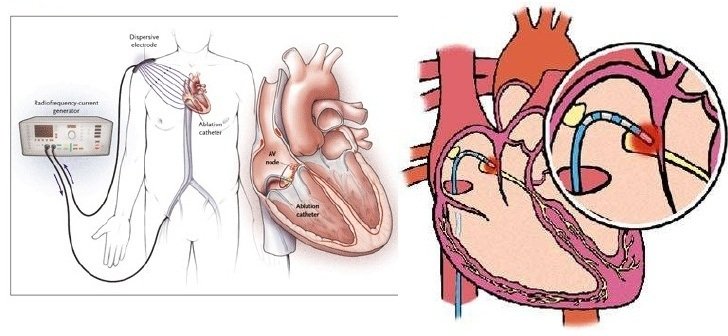
Rediofrequency Ablation
Radiofrequency Ablation (RFA) is a minimally invasive medical procedure that uses high-frequency electrical currents to generate heat, effectively destroying abnormal tissue or cells.
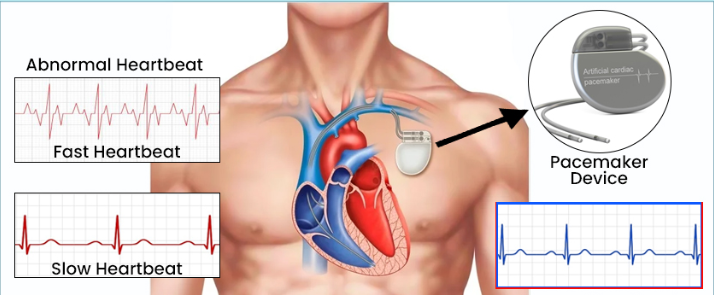
Pacemaker Implantation
Pacemakers are medical devices designed to support and regulate the electrical system of the heart, ensuring it functions properly. This medical procedure entails the insertion of a small device into the chest region.

ICD Implantation
An Implantable Cardioverter-Defibrillator (ICD) is a life-saving device that plays a crucial role in monitoring and regulating heart rhythms. It consists of a pulse generator and leads implanted in the heart.

CRT_P & CRT-D Implantation
CRT implantation is a process in which technological instruments known as CRT-P and CRT-D where p stands for pacemaker and d stands for defibrillator.

Valvuloplasty
A balloon mitral valvuloplasty is a process to extend a restricted heart valve and improve blood flow. The heart valves handle how blood drives through the heart.
Our Achievements in Numbers
Happy Patients
Years of experience
Specialisations
Hospital Associations
Awards & Recognition
Patient Testimonials
Dr Chetan Rathi sir is good cardiologist. I visited him many times with my family and friends for consult about issues related with cardiology.
Our Videos




Our Blog
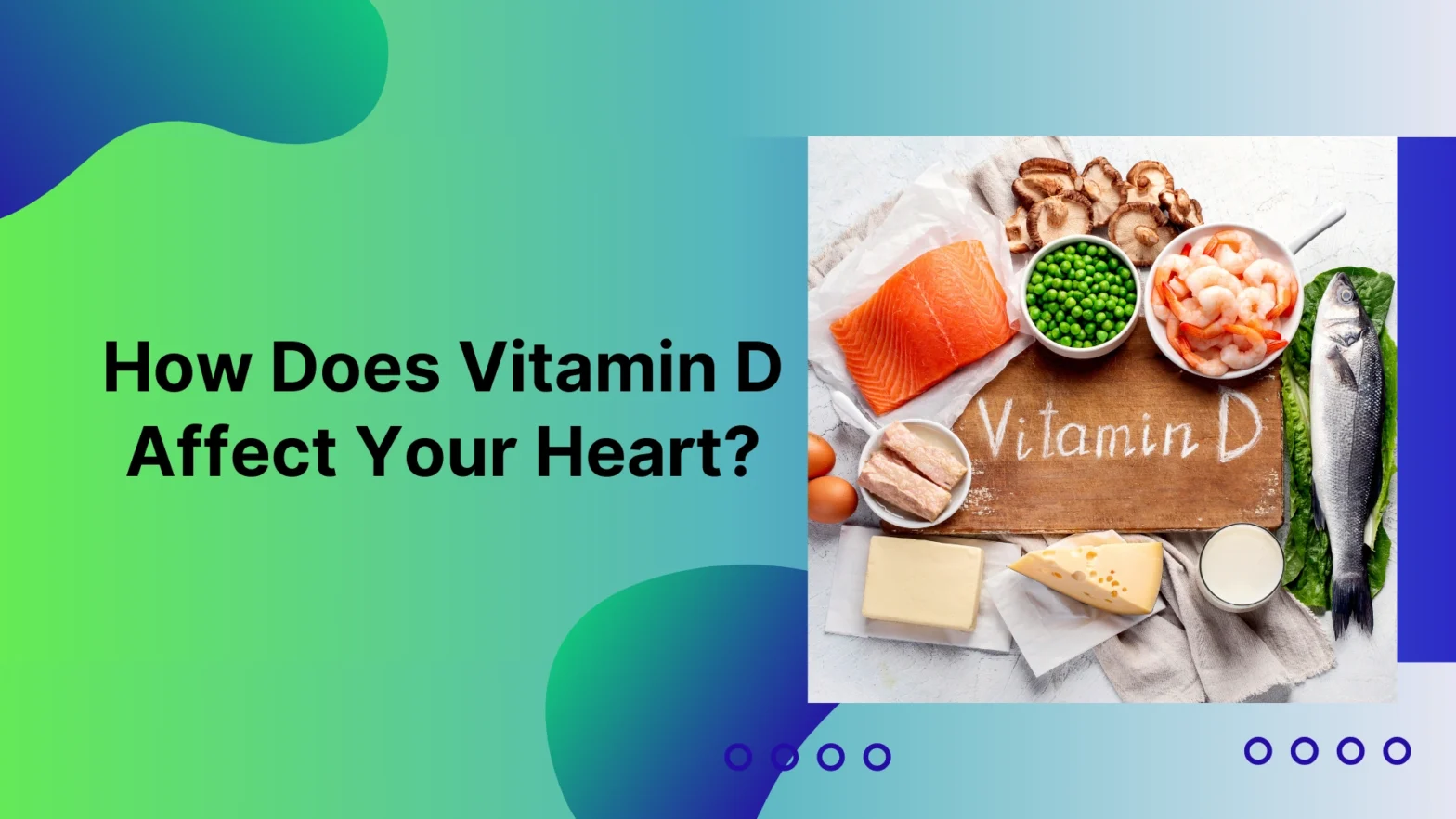 How Does Vitamin D Affect Your Heart?
How Does Vitamin D Affect Your Heart?
Vitamin D is much more than the “sunshine vitamin”; it is very important in the whole body of heart health. It works from bone health to an enhanced immunity function. Scientific studies show that this regulates cardiovascular health; therefore, it is a very great factor in preventing heart diseases and maintaining optimal heart function. This… Continue reading How Does Vitamin D Affect Your Heart?
Read More Understanding Diabetes: Causes, Symptoms, and Management
Understanding Diabetes: Causes, Symptoms, and Management
Diabetes mellitus is a chronic condition that affects the way your body processes glucose, or sugar. Unchecked, diabetes mellitus can lead to serious complications, such as heart disease and kidney damage, as well as nerve problems. Understanding the types of diabetes, the symptoms of diabetes, the causes of diabetes, and how to take care of… Continue reading Understanding Diabetes: Causes, Symptoms, and Management
Read More What Is Syncope and How Can It Be Prevented and Treated?
What Is Syncope and How Can It Be Prevented and Treated?
Syncope, also known as fainting, is a short-lived loss of consciousness which primarily results from a sudden decrease in blood flow to the brain. Although fainting can be alarming, syncope is generally not a serious condition and can be caused by a variety of reasons; however, it may indicate an underlying serious medical condition in… Continue reading What Is Syncope and How Can It Be Prevented and Treated?
Read More



